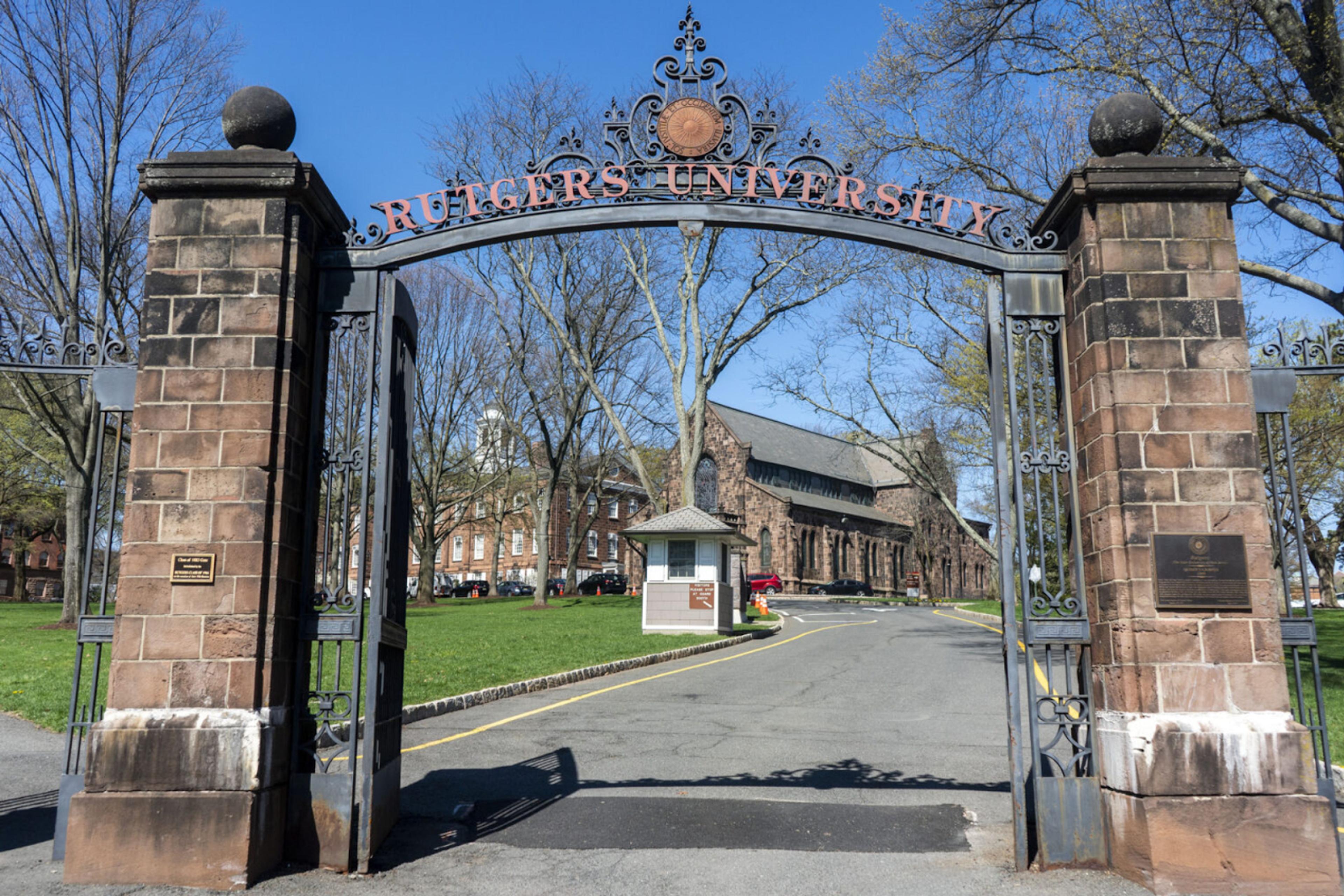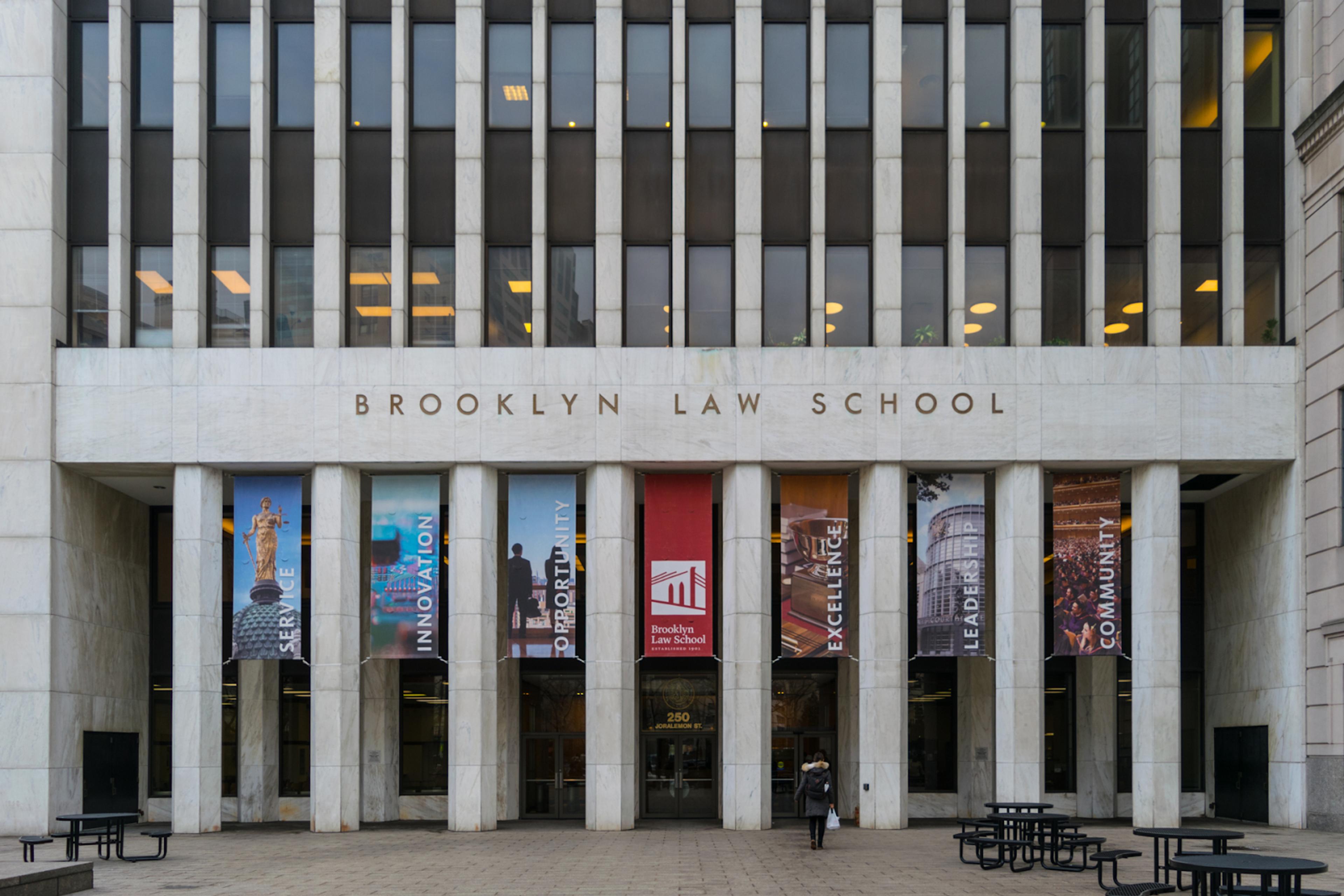The Top 10 Law Schools for Intellectual Property Law
If you're looking to specialize in Intellectual Property Law, this article is a must-read! Discover the top 10 law schools that offer the best programs and resources for IP law students.
Posted March 6, 2025

Table of Contents
Free Event

Featuring Indrani S.
Law School App Office Hours with a Former Stanford AdCom Member
Starting Thursday, April 17
11:30 PM UTC · 45 minutes

Featuring Indrani S.
Intellectual Property Law (IP Law) is a specialized field of law that focuses on protecting creative works and ideas. In today’s fast-paced world, where technological advancements and innovation drive economic growth, the demand for skilled IP lawyers is higher than ever. With so many law schools offering IP Law programs, deciding which one to attend can be challenging. In this article, we will discuss the top 10 law schools for IP Law, and help you make an informed decision about where to pursue your studies.
What is Intellectual Property Law?
Intellectual property law is a rapidly evolving legal field that focuses on protecting intellectual property rights, including patents, trademarks, copyright law, and trade secrets. As innovation and technology shape modern economies, legal professionals specializing in intellectual property protection play a crucial role in ensuring that intellectual works—such as computer software, artistic works, and industrial designs—are safeguarded under federal law and international regulations.
For aspiring legal professionals, selecting the right IP law program is critical. Top law schools provide extensive training in patent law, technology transfer, and competitive advantage strategies, helping graduates navigate complex issues such as patent infringement, exclusive rights, and geographical indications. This guide examines the best IP law programs in the U.S., using a data-driven approach to identify institutions that excel in curriculum, faculty expertise, and career opportunities.
Ranking Methodology: How the Top IP Law Schools Were Selected
The following criteria were used to determine the best law schools for intellectual property studies:
- Faculty expertise - Presence of leading scholars, practitioners, and researchers in IP law.
- Curriculum strength - Comprehensive coursework in patent law, copyright law, trademarks, and industrial property.
- Research and innovation resources - Centers dedicated to intellectual property protection and technology transfer.
- Practical training opportunities - IP law clinics, legal externships, and partnerships with intellectual property owners.
- Career outcomes - Success rates in bar passage, employment in business and technology industries, and influence on IP system policy.
Top 10 Intellectual Property Law Schools
1. University of California Berkeley School of Law
Berkeley Law is renowned for its intellectual property program, particularly its Berkeley Center for Law and Technology (BCLT). The school offers in-depth courses on patent law, copyright law, trademarks, and trade secrets. With strong ties to Silicon Valley, students gain unparalleled access to technology companies and business sectors requiring intellectual property protection.
- Acceptance Rate: Approximately 22%
- Median GPA: 3.81
- Median LSAT: 168
- Tuition: $49,364 per year (in-state); $53,315 per year (out-of-state)
2. Stanford Law School
Stanford Law provides cutting-edge instruction in IP law, emphasizing innovation, patents, and exclusive rights through its Juelsgaard Intellectual Property and Innovation Clinic. The program's interdisciplinary approach allows students to collaborate with engineers and entrepreneurs on intellectual property rights.
- Acceptance Rate: 6.88%
- Median GPA: 3.93
- Median LSAT: 171
- Tuition: $64,350 per year
3. New York University School of Law
NYU Law’s Engelberg Center on Innovation Law & Policy is a hub for IP system research. Students benefit from courses covering industrial designs, artistic works, and computer software protections, along with extensive clinical opportunities in intellectual property enforcement.
- Acceptance Rate: Approximately 16.76%
- Median GPA: 3.77–3.96
- Median LSAT: 168–174
- Tuition: $70,400 per year
4. Harvard Law School
Harvard Law houses the Berkman Klein Center for Internet & Society, focusing on intellectual property protection in the digital age. The curriculum includes specialized training in patent infringement, copyright law, and the impact of intellectual property rights on developing countries.
- Acceptance Rate: 10.1%
- Median GPA: 3.92
- Median LSAT: 174
- Tuition: $67,720 per year
5. Columbia Law School
Columbia's Kernochan Center for Law, Media, and the Arts is a leading research institution in IP law, exploring topics like literary and artistic works, computer programs, and legal term protections. Students engage in hands-on IP system cases, preparing them for roles in federal law agencies and business sectors.
- Acceptance Rate: 11.9%
- Median GPA: 3.87
- Median LSAT: 173
- Tuition: $75,572 per year
6. Georgetown University Law Center
Georgetown's Intellectual Property and Technology Program bridges the gap between intellectual property law and policy, offering specialized coursework on industrial property, patents, and technology transfer. Graduates often work with the United Nations and European Union on IP rights governance.
- Acceptance Rate: 12.9%
- Median GPA: 3.84
- Median LSAT: 171
- Tuition: $69,280 per year
7. University of Pennsylvania Carey Law School
UPenn Law’s Center for Technology, Innovation, and Competition (CTIC) focuses on stimulating innovation through research in patent law and intellectual property enforcement. The program supports students interested in careers as patent owners and intellectual property consultants.
- Acceptance Rate: 9.7%
- Median GPA: 3.9
- Median LSAT: 172
- Tuition: $68,130 per year
8. University of Chicago Law School
With a strong emphasis on the IP system, UChicago Law provides robust training in intellectual property protection, patent law, and trademarks. The school’s Kreisman Initiative explores the business applications of IP law, from commerce to industrial designs.
- Acceptance Rate: 14.2%
- Median GPA: 3.91
- Median LSAT: 173
- Tuition: $72,081 per year
9. Northwestern Pritzker School of Law
Northwestern Law’s Innovation Lab and IP Law Clinic offer a hands-on approach to intellectual property legal practice. The program addresses exclusive rights, technology licensing, and competitive advantage through case studies involving major brands.
- Acceptance Rate: 15%
- Median GPA: 3.89
- Median LSAT: 171
- Tuition: $72,212 per year
10. Santa Clara University School of Law
Located in the heart of Silicon Valley, Santa Clara Law excels in IP law education, emphasizing software, technology, and intellectual property protection. Students engage with leading business and technology companies to address emerging issues in intellectual property rights.
- Acceptance Rate: 53.3%
- Median GPA: 3.18–3.62
- Median LSAT Score: 159
- Tuition: $2,172 per unit for the 2024-2025 academic year. For a typical first-year full-time student enrolled in 28 units, the total tuition would be $60,816.
How to Choose the Right Law School for Intellectual Property Law
Selecting a law school should be based on personal career goals and the institution’s strengths in intellectual property protection, patents, and trademarks. Consider these factors:
- Academic Rigor: Ensure the school offers advanced courses in copyright law, patent law, and trade secrets.
- Research Opportunities: Look for programs that explore emerging fields like computer software, artistic works, and geographical indications.
- Career Support: Schools with strong intellectual property enforcement clinics and technology transfer programs provide students with a strategic competitive advantage.
- Global Reach: Institutions with partnerships in the European Union, United Nations, and developing countries expand career prospects.
Career Opportunities in Intellectual Property Law
Graduating from a top intellectual property law school opens doors to a diverse range of career paths across industries. Intellectual property (IP) law is a dynamic field that intersects with business, technology, and innovation, offering lucrative and intellectually stimulating opportunities. Below are the most prominent career options for IP law graduates:
Law Firms (IP Litigation & Corporate IP Law)
Many IP law graduates join specialized IP law firms or general practice firms with strong intellectual property divisions. Lawyers in these firms work on:
- Patent infringement cases, defending or challenging patents in court.
- Trademark disputes, including brand protection and registration issues.
- Copyright law enforcement, safeguarding the rights of creators of literary and artistic works.
- Trade secrets litigation, protecting confidential business information.
Corporate Legal Departments (In-House Counsel)
Companies that rely on innovation, such as technology, biotech, and pharmaceutical firms, employ intellectual property attorneys to handle:
- Patent law filings and protection for new inventions.
- Trademark law and brand protection strategies.
- Intellectual property licensing, including technology transfer agreements.
- Regulatory compliance in global markets.
Government Agencies & Public Sector IP Law
Government entities play a key role in intellectual property rights enforcement and policy-making. Graduates can work in:
- United States Patent and Trademark Office (USPTO) as patent examiners or legal advisors.
- Department of Justice (DOJ) handling IP law enforcement cases.
- Federal Trade Commission (FTC) investigating intellectual property disputes involving unfair competition.
- International Trade Commission (ITC) working on cross-border patent infringement issues.
International Organizations & Policy Advocacy
Global organizations provide opportunities for IP lawyers to engage in policy-making, intellectual property protection, and technology transfer discussions. Key employers include:
- United Nations (UN) – Advocating for global IP rights and fair trade policies.
- World Intellectual Property Organization (WIPO) – Working on IP law treaties and standards.
- European Union (EU) – Assisting in IP system harmonization across member states.
- Non-Governmental Organizations (NGOs) – Supporting developing countries in enforcing intellectual property rights.
Academia & Research (Legal Scholars & IP Policy Experts)
For those interested in intellectual property research, academia offers roles as:
- Law Professors teaching IP law at top law schools.
- Legal Researchers contributing to policy development on intellectual property protection.
- Think Tank Analysts working on innovation and IP system reforms.
Tips for Applying to Top IP Law Schools
Securing admission to a top intellectual property law school requires a strategic approach. Competitive applicants must demonstrate strong academic performance, relevant experience, and a clear commitment to IP law. Here are key steps to enhance your application:
Research law schools and specializations
Not all law schools offer equally strong IP law programs, so thorough research is essential. Look for institutions with faculty members who specialize in patent law, copyright law, trademarks, and trade secrets. Schools that have research centers dedicated to intellectual property protection or intellectual property enforcement provide valuable resources for students. Additionally, consider the school's proximity to technology hubs, which can offer internships and networking opportunities in business, technology, and industrial property law. Programs with moot court competitions and IP law clinics can also provide hands-on experience.
Read: How to Get Into Law School: Advice from an Expert
Build a strong academic record
Law schools prioritize applicants with a competitive GPA, typically 3.7 or higher for top-tier programs. A strong academic foundation in STEM, business, or technology-related fields can signal a serious interest in IP law, particularly for those interested in patent law. Taking courses in intellectual property protection, industrial property, and copyright law can strengthen your application, demonstrating your commitment to the field.
Gain relevant work experience
Practical experience in IP law can set applicants apart from other candidates. Internships at law firms specializing in intellectual property rights provide exposure to patent law, trademark disputes, and copyright enforcement. Working as a research assistant in a legal or technology-focused academic center can offer insight into emerging IP law trends. Additionally, securing in-house legal internships at technology, biotech, or entertainment companies can provide firsthand experience with intellectual property protection in the corporate world.
Prepare for the LSAT strategically
The LSAT is a critical factor in law school admissions, and a high score can significantly improve your chances of acceptance. For top IP law programs, aim for a score above 165. Since logical reasoning and reading comprehension are crucial for IP law, focus on honing these skills through practice exams and LSAT prep courses. A well-prepared LSAT strategy can help maximize your admission prospects.
Read: LSAT Prep 101: A Comprehensive Guide to Succeeding on the Exam
Highlight your passion for IP Law in your application
A compelling personal statement should clearly articulate why you are interested in IP law and how your background aligns with the field. Highlight relevant experiences, such as working with technology firms, creative industries, or business ventures that rely on intellectual property. Clearly outline your career goals, whether in litigation, corporate law, technology transfer, or policy development. Strong letters of recommendation from professors or professionals in IP law can further strengthen your application. Showcasing technical skills or industry knowledge—such as experience with patents, trademarks, or software licensing—can make your application stand out.
Choosing the Right IP Law School for You
Attending a top IP Law school can provide you with the skills and knowledge you need to succeed in this fast-growing and ever-changing field. To make the most of your law school experience, research your options thoroughly and choose a school that aligns with your goals, interests, and learning style. With hard work, dedication, and a passion for IP Law, you can build a rewarding and fulfilling career as an IP Law professional.
The Next Steps: Selecting the Right IP Law School for You
Attending a top intellectual property law school provides the foundation needed to succeed in this competitive and evolving field. The right program will equip you with the skills, knowledge, and professional network to navigate patents, trademarks, copyright law, and trade secrets effectively. With intellectual property protection becoming more crucial across industries—including technology, business, and creative sectors—selecting the best law school for your career goals is essential.
To maximize your law school experience, thoroughly research programs that align with your interests, learning style, and long-term aspirations. Schools with strong faculty, cutting-edge research centers, and hands-on experiential learning opportunities will give you the strategic advantage needed to thrive. Whether your focus is on patent law, technology transfer, or intellectual property enforcement, the quality of your education will significantly influence your career trajectory.
Given the competitiveness of top IP law programs, navigating the admissions process can be challenging. Working with a top law school admissions coach can provide personalized guidance, helping you craft a compelling application, improve your LSAT score, and position yourself as a strong candidate. With expert support, you can increase your chances of securing a spot in a top-ranked IP law school and building a successful career in intellectual property law.
Read next:
- The Top 10 Law Schools for Criminal Law
- The Top 10 Law Schools for Family Law
- The Top 10 Law Schools for Government and Public Sector
- The Top 10 Law Schools for Energy and Natural Resources Law
FAQs
What are the different types of intellectual property rights?
- Intellectual property rights encompass various protections, including patents, trademarks, copyrights, and trade secrets. Each type safeguards different forms of intellectual creations, such as inventions, brand identifiers, creative works, and confidential business information.
What qualifications are required to become an IP lawyer?
- To practice IP law, one must complete an undergraduate degree, pass the LSAT, graduate from law school, and pass the bar exam. Additionally, aspiring patent attorneys often need to pass the U.S. Patent and Trademark Office exam, which may require a background in science or engineering.
What is the role of an IP lawyer?
- IP lawyers assist clients in protecting their intellectual property through legal means. This includes securing patents, trademarks, and copyrights, as well as enforcing these rights through litigation or negotiation. They may also advise on licensing agreements and the management of intellectual property portfolios.
How does one specialize in a particular area of IP law?
- Specialization in IP law can be achieved by focusing on specific areas such as patent law, trademark law, or copyright law during legal education. This may involve taking specialized courses, participating in relevant clinics, and gaining experience through internships or work in the chosen area.
What are the career prospects for IP lawyers?
- IP law offers diverse career opportunities, including positions in law firms, corporate legal departments, government agencies, and international organizations. The demand for IP lawyers remains strong due to the continuous innovation and creation of new technologies and brands.
What is the importance of IP law in the global economy?
- IP law plays a crucial role in promoting innovation and creativity by providing legal protections that incentivize individuals and companies to develop new products, services, and works. It helps maintain a fair marketplace by preventing unauthorized use of protected intellectual assets, thereby contributing to economic growth.










